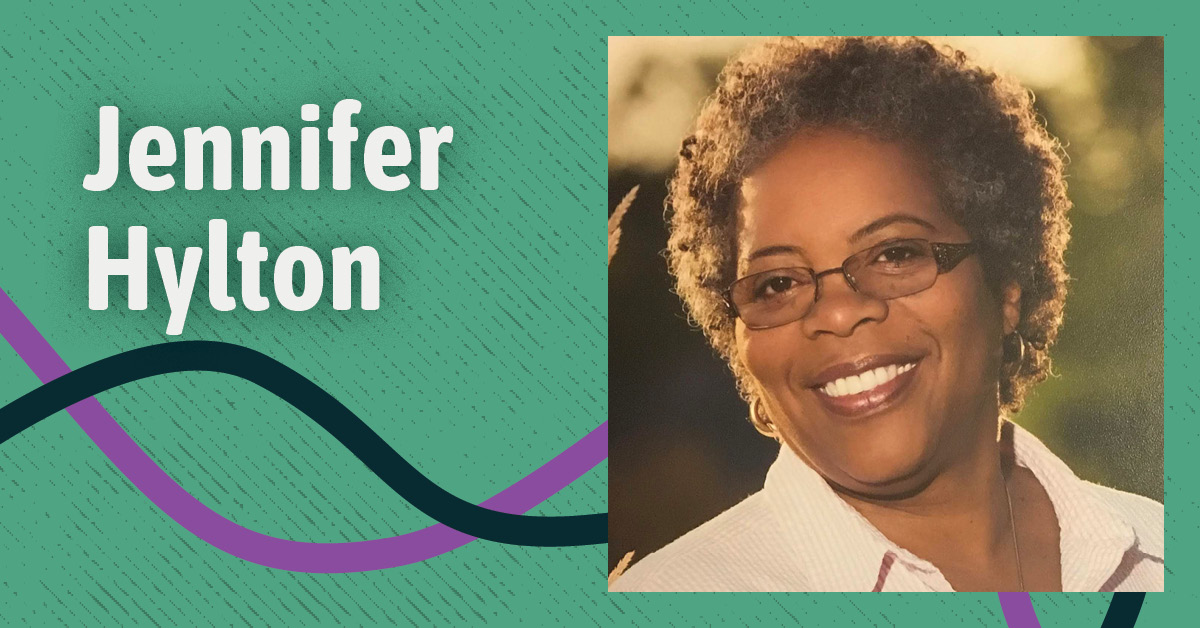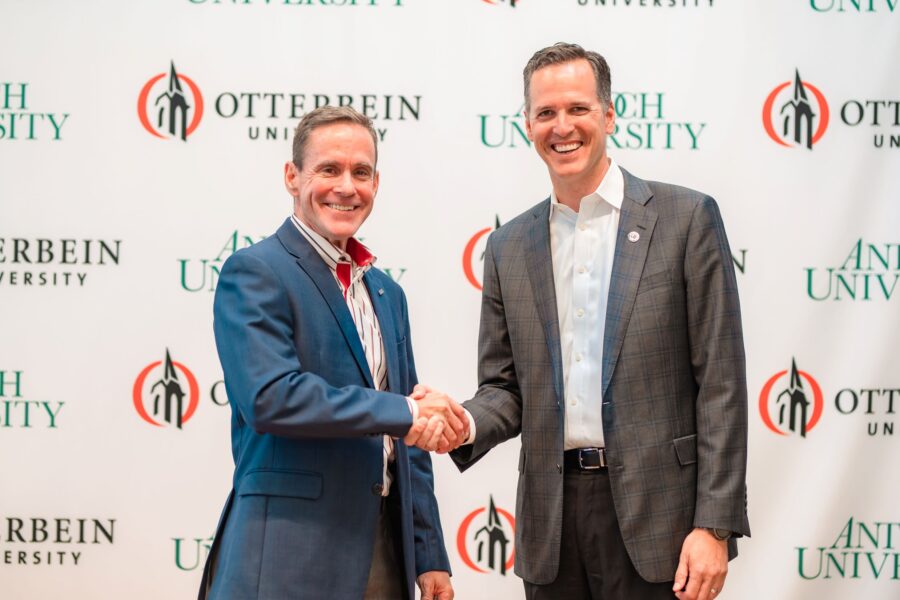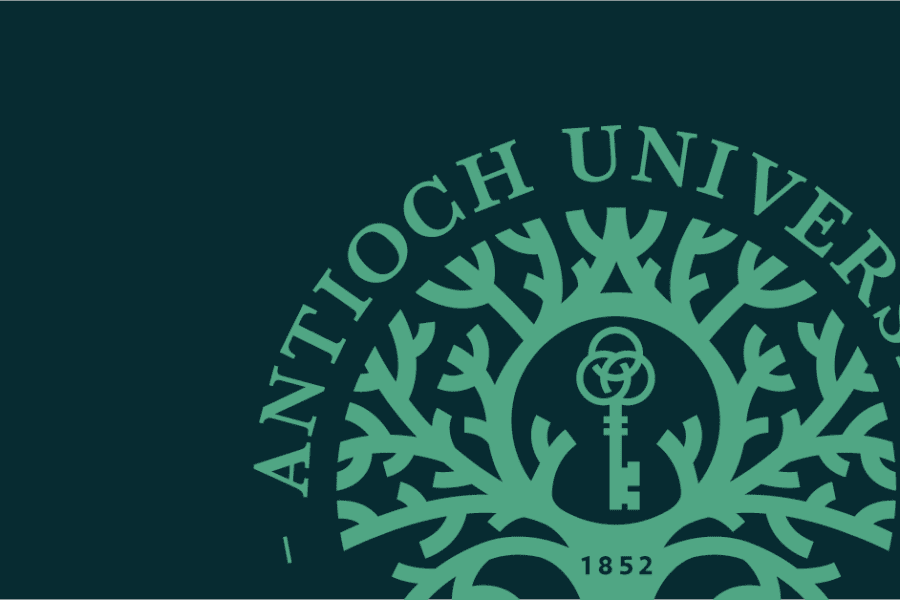When Jennifer Hylton was a student at an all-girls school in Jamaica in the 1960’s, she was a ringleader, bringing people together and listening to everyone’s problems. At the same time, she loved spending time alone in the school’s little library, paging through the encyclopedia—the analog equivalent of falling down a Google hole. It was on one of these exploratory wanders that she first heard of the practice of psychology.
In that era, careers for women were limited. “Back then, you were either a teacher or a nurse,” remembers Hylton. But sitting in the quiet library, she was struck by the idea of a job that centered understanding people and helping people understand themselves. Even at her young age she recognized that this wasn’t so different from what she already loved to do, as a central figure and counselor in her social world. But here, the job would be formal, and would come with professional training.
Hylton now lives near Worcester, Massachusetts. It’s been her home for the last forty years, and today she is a different kind of leader: she provides mental health care in a professional context for her community. She accomplished her childhood dream and—with a Doctor of Psychology degree from Antioch’s New England campus on her resumé—she has made a successful career in the field of her choice.
But the path to where Hylton is now has not been the same one taken by all students of psychology. Over and over, she has chosen to center people who are stigmatized by racism, sexism, and xenophobia. To do this important work, she dedicates herself fully to whatever task is at hand. And this attitude she traces back to the childhood where all of her plans started—and particularly to her father. “It was always instilled in me,” she explains, “that whatever you’re going to do, you must work so hard at it.”
The evidence of this hard work is plain for all to see: she has started three clinics focusing on underserved populations in the greater Worcester area. But it would be wrong to call this a culmination of her work—because Hylton’s efforts continue. And while her story up to now is interesting and inspiring, what’s most exciting is the way that she is using her personal relationships, her professional leadership, and her powers of institutional organizing to write the next chapter.
From Working in Business to Building Her Passion
When Hylton arrived in New York City in 1980, she found her first jobs in the world of business. But friends continued to call when they had problems, just like in high school. Over time she was dedicating more and more time and energy to support the people she cared about. And she found herself loving it. She remembers thinking, “I don’t want to do balance sheets, and I don’t want to insure people’s properties. I want to work with people.”
This realization spurred her to leave her job and start the work to become a marriage and family therapist. By that time she was living in Massachusetts. She applied for a masters program at Cambridge College—a university in Boston that previously had been part of the Antioch Network—and she got in. After two years of hard work, she completed her degree as part of the program’s first graduating class. She got her licensure and eventually was able to start her own private practice, working with individuals, couples, and families to help them navigate the ups and downs of life.
Then, a friend called and asked for a ride.
The friend was going to an info session held by Antioch New England’s PsyD in Clinical Psychology program. Hylton lived near her friend, had a working car, and was characteristically willing to help. When they arrived on campus, she found that the meeting was open to whoever was interested. So she decided to stay and hear what the degree was all about, even though at the time she was certain that she was finished with school.
As the presenter outlined the focus of the doctoral program and how it was focused on clinical, social, and community-centered learning, she became interested. Hylton had, by now, sat with her own clients and worked with families from diverse cultures. “I was seeing what society does and the impact of social policies on the lives of people from all different ethnic, racial, economic backgrounds,” she says. “Hearing about Antioch, just at that time, seemed quite fitting. I was ready for it, ready to move to that level.” By September she was back in school, this time studying for her doctorate at Antioch New England.
“It was just by pure chance,” she says. “I had not researched other schools, because to me it all seemed so intimidating.” At Antioch she found a community that supported her. “They gave me the kind of support where, if I needed help, they were there to encourage me, to push me,” she says.
During her studies, Hylton continued her therapy practice, where she tried to use everything she was learning to positively affect individuals and larger systems. At the same time, she started to look at the larger ways she could affect mental health in her region. This, even at the time, made her an outlier within the program. As Lorraine Mangione, the Director of Practica in Clinical Psychology at Antioch New England explains, “We do some classroom work on leadership, but I think a lot of students don’t picture themselves as possible leaders or as people who are going to develop something.” Not Hylton. She developed this approach in the program, graduating in 2001. And since her time at Antioch, she has become a model for such leadership in her community.
Changing Systems Through Cultural Competency
Hylton spent years working in the school system in Worcester and at times providing psychological testing for children involved in court proceedings through the public defender’s office. Worcester, in central Massachusetts, is a city that has seen dramatic rises in poverty in recent years. In this, it is much like many other cities and towns that once relied on industry as the foundation of their economies. For Worcester, this poverty has led to increases in substance use, difficulties in accessing housing, and mental health crisis.
While working in schools and with children referred by the public defender’s office, Hylton was able to help address the mental health needs of young people who were often swept into situations and systems that failed to recognize their complexity as human beings. As one of the only Black psychologists in the area, she found she was often called on because of the cultural competency she could provide in her assessments. “Even before I got my license I was getting phone calls,” Hylton says. The people would say to her things like, “Well, can you test this person, because they’re from the islands and you would understand them?”
This became her passion. She often saw children who may have committed crimes, but who were going before a court system without having their cognitive capacities taken into account. Hylton remembers testing one of these kids in particular. “I sat with him,” she says, “really getting to know him, to understand the things that he had done.” After she finished the test she immediately called the attorney. “I said, this child cannot go to jail,” Hylton recalls. She became an advocate for kids who were facing situations far beyond their scope of understanding and who were often unfairly treated as if they were adults.
Mangione echoes the importance of Hylton’s work, saying, “She’s taking on that systemic level that many people shy away from. And I think you can make a different level of change by taking that on.”
Building a System to Change More Lives
As much as changing young peoples’ trajectories was what Hylton wanted to do, those years of work within the system were taxing. She wasn’t sleeping on the weekends, and her work load became unmanageable. This was her passion, but the emotional toll was unsustainable.
A talk with a close friend once again led to a huge shift. Hylton recalls the exchange. He told her that what she had to do was to open her own clinic. And her response was to say, “I can’t open a clinic. I don’t even know the first thing about opening a clinic.” But her friend pushed her to look into it. “And in three months, I opened my first clinic,” she says with a laugh.
For this new project, she wanted to bring the foundations of her practice to the larger community in Worcester. “I wanted the clinic to be something different than what I had seen,” she says. “I wanted a clinic for the people to understand that when they came there I cared about them.” Her clients weren’t going to be statistics or numbers. Just like when she worked with young people, advocating for them in court, Hylton also wanted the people who worked with her to know everyone was a whole person with their own story. She wanted to provide competent and compassionate care to people who were often stigmatized.
That first clinic she opened was The Counseling and Assessment Clinic of Worcester, LLC. She opened its doors in 2007. As clients began coming in, the gap in mental health resources became more apparent. People who were living in poverty, unsheltered, or using substances rarely had anywhere to turn for help. In 2009 a staff member told her that a nearby town, Fitchburg, had no mental health support for the Spanish speaking and immigrant communities in the area. An immigrant herself, Hylton is familiar with the difficulties faced navigating the cultural norms of the United States. That year Hylton opened two more clinics, one partially geared towards people who speak Spanish as their primary language (though it serves others, too), and one for people who are seeking treatment for drug use.
Three Clinics, Each With a Clear Mission
Today all three of these clinics are still open. At the substance addiction recovery clinic, Hylton and her team provide a wide variety of services: helping with court documentation, providing group drop-in therapy, and giving structured outpatient support.
Although Hylton isn’t the only person in the field focusing on substance addiction recovery, her success in treating people has been a guide for others. Often, people ask her to visit their institutions and speak on what works so well at her clinic. Says Mangione, “She forged ahead into some areas that psychology doesn’t always move into.” But the results speak for themselves, and now psychology as a profession is working to catch up.
Hylton doesn’t provide this service on her own, of course. She has a team that she trusts, and many of the people in leadership positions at her clinics have worked with her for a decade or more. “They’ve stayed and have the dedication that I have, and the drive that I have to make this clinic one of the best,” she says. She credits this dedication as what makes her clinics so successful.
And after years of this work Hylton knows what it’s like to balance caring for others and yourself. Because of this, she is always available to support her people. “They know they’re not in this alone,” she says. “Nobody has to bear this alone or to say that they have to carry this burden alone.”
Neither does Hylton. Over the years, many of her family members have come to work at the clinics with her. One daughter is a nurse practitioner who manages medication. Another daughter as well as Hylton’s husband are attorneys who help run the business side of things. Her daughter-in-law is from Puerto Rico, and she serves as medication manager and helps to interpret in the clinics.
“None of us came into this field because we wanted to be rich,” she says. “We came in here because we wanted to help.” There is a deep desire in Hylton, her family, and the people she works with to make life better for other people. And as she says, “I think that’s the care that we give.”
Working With Abundance
Hylton has provided a great deal for her community, but she also saves some generosity for her own backyard. “My husband says why are you planting so much?” She says, “Because I just love to see things grow and to share them.”
Every year she plants more than the two could possibly eat on their own. Tomato plants hang heavy with fruit. Squash vines trail into the yard. Hylton loves when there is so much she can pack up a basket and give it to a neighbor.
This giving, the pleasure of connecting and providing shines in everything she does, from the garden to her clinics to serving as a sponsor of one of Worcester’s most renowned shelters for unhoused women and children. “Whatever I’m doing, I put some passion into it,” she says. “I think it’s the reward we get from it. There is great reward when somebody tells you, “Oh my god, you changed my life.’”




